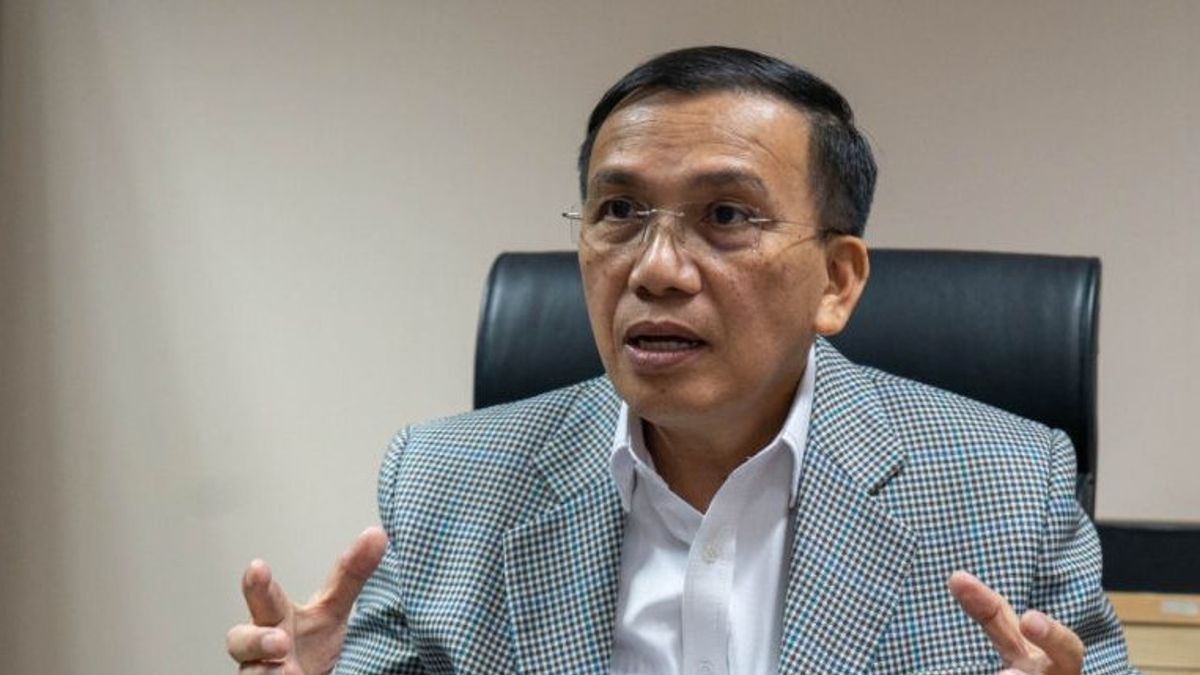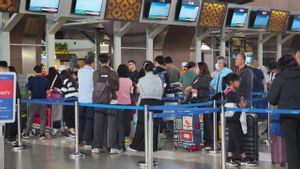JAKARTA - The Presidential Staff Office fully supports the pilot implementation of the Standard Inpatient Class (KRIS) in July 2022 which is considered to provide equal rights in services through BPJS Health.
Main Expert Staff of the Presidential Staff Office Noch Tiranduk Mallisa said that the implementation of KRIS is a mandate from Law Number 40 of 2004 concerning the National Social Security System (SJSN).
The goal is to provide the same health facilities and services for BPJS health participants. Thus, classes 1, 2, and 3 in the JKN-KIS program will be abolished.
"This KRIS humanizes humans. This is in line with the mandate of the law, that all people have the same rights in obtaining health facilities and services," Mallisa said in an official statement received in Jakarta, Saturday, June 11.
This retired TNI officer revealed that for the initial stage, the KRIS program would be piloted in a vertical special hospital owned by the Ministry of Health.
This right is because, in terms of resources, vertical hospitals receive full support from the central government, both in terms of infrastructure and budget fulfillment.
He mentioned that from the results of the monitoring and field verification of the Presidential Staff Office team, the Ministry of Health's vertical hospitals in several areas were ready for KRIS trials.
Mallisa detailed a number of hospitals that had been visited, including RS dr. Sardjito in Yogyakarta, North Toraja Pongtiku Hospital and Reksodiwiryo Army Hospital in Padang, West Sumatra.
VOIR éGALEMENT:
But on the other hand, from the results of field verification, there are a number of obstacles faced by the vertical hospitals of the Ministry of Health and the TNI in implementing KRIS, such as the availability of land and other infrastructure.
"But the point is they are ready for trials. This is what we continue to encourage," he said.
Mallisa admits that the implementation of KRIS is not easy and requires a long transition period.
According to him, many things must be prepared, starting from the standard of room facilities to the amount of fees and hospital rates that must be reformulated.
The public also does not need to worry, considering that BPJS Health services and hospitals are still running as usual.
Mallisa hopes that the implementation of KRIS in the Ministry of Health's vertical hospitals will go well, so that it can be continued to TNI-Polri hospitals, regional government hospitals, to private hospitals.
For information, at the initial stage, KRIS will be implemented in 50 percent of vertical hospitals by setting nine mandatory criteria out of 12 agreed criteria.
The first four mandatory criteria require that hospital building materials do not have high porosity, air ventilation, room lighting, bed equipment with at least 2 plugs, and a "nurse call" connected to the nurse's guard room.
The remaining five criteria require the availability of a health care desk, stable room temperature of 20-26 degrees Celsius, rooms divided by gender, age, and type of disease (infectious, non-infectious, and maternity), regulation of the density of the ward and bed quality, as well as curtains or rail partitions. immersed or attached to the ceiling and non-porous materials.
The English, Chinese, Japanese, Arabic, and French versions are automatically generated by the AI. So there may still be inaccuracies in translating, please always see Indonesian as our main language. (system supported by DigitalSiber.id)














